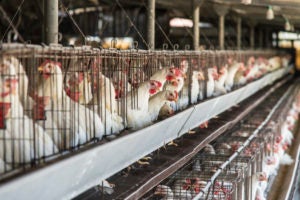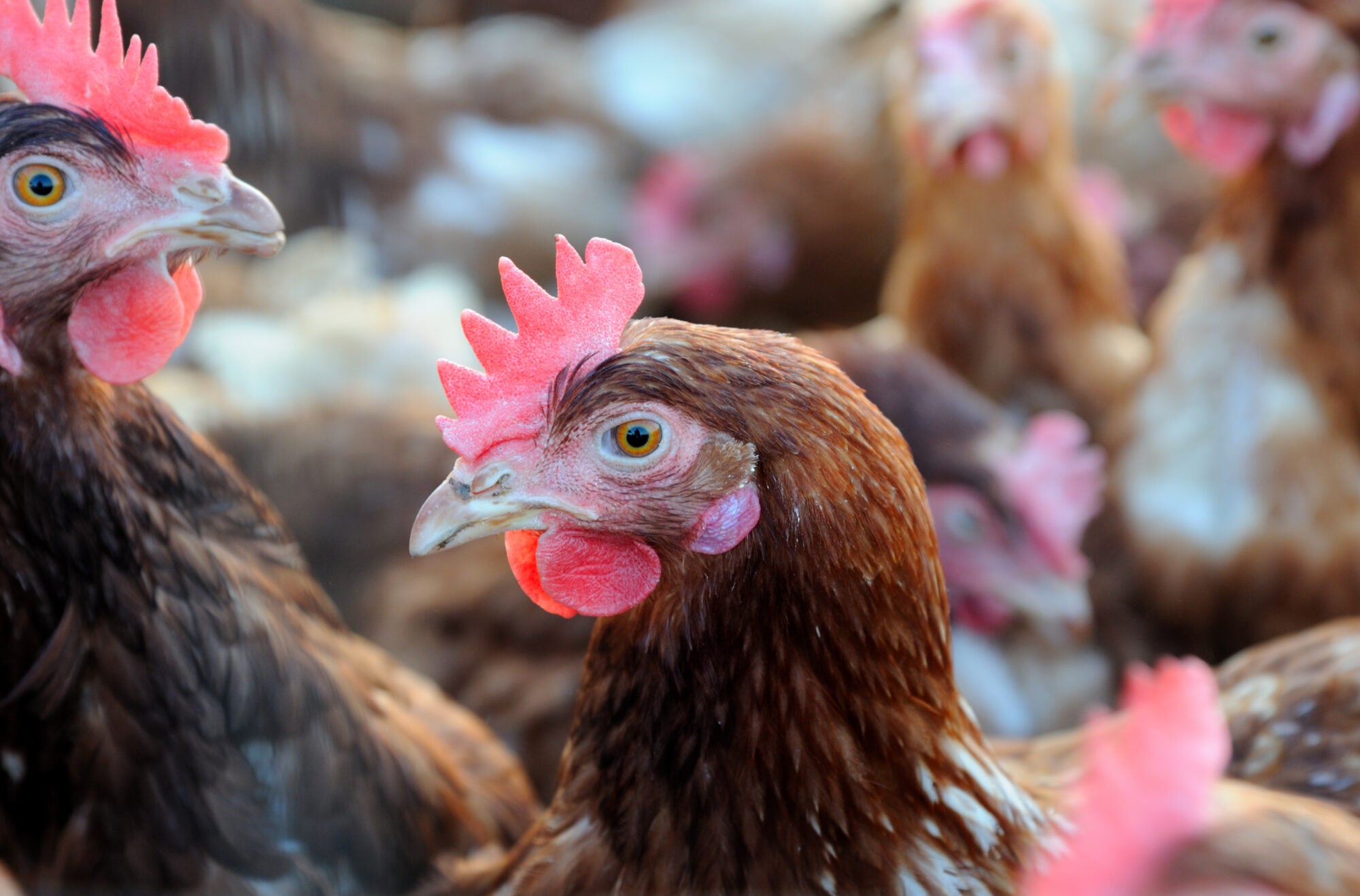
OTTAWA—The largest study ever conducted on the welfare of chickens raised for meat confirms that fast-growing breeds, which make up the majority of chickens raised for commercial meat production, suffer immensely. Around the world, a staggering 60 billion broiler chickens are bred for meat each year.
The University of Guelph, Canada, study included 7,500 chickens from 16 different strains and took two years to complete. While previous studies have also indicated that chickens raised for meat are prone to health and welfare problems, this new research demonstrates that, despite recent breeding objectives, selection for rapid growth and breast-meat yield continues to leave conventional chicken strains with significant welfare issues such as reduced mobility, foot pad lesions, muscle damage and disproportionate heart and lung development. Slower growing chickens tested in the same research trial had consistently better health and behavioural outcomes.
Most commercial chicken meat production around the world currently utilizes rapidly growing breeds, selectively bred over generations to grow unusually fast. These chickens grow from hatch to slaughter weight in just six weeks, the vast majority intensively reared in overcrowded sheds on factory farms devoid of environmental enrichment or natural sunlight.
As stated in the research summary report: “While this high productivity means affordable, consistent product, it has come at a cost to broiler welfare.”
Riana Topan, HSI/Canada’s campaign manager for farm animal welfare, says: “More than 750 million chickens were raised and slaughtered for meat in Canada last year. This study confirms what we already suspected: that the fast growth and tremendous weight these animals have been bred to reach results in very poor welfare, and a life of pain. Responsible food companies across the country must work quickly to move away from these rapid-growth birds and implement reforms – outlined in the Better Chicken Commitment – to reduce the needless suffering of millions of animals. Retailers, restaurants and consumers must also make more responsible purchasing choices, including reducing and replacing chicken altogether with plant-based proteins and meat-free chicken alternatives.”
The University of Guelph worked independently but accepted input and advice from chicken breeding companies, who provided the animals for the study and advised on their needs. However, even when tested under the carefully controlled environmental conditions specified by the breeders, the welfare of the fastest growing commercial strains was poor. Rapidly growing broiler chickens reared without carefully controlled ventilation, nutrition or temperature controls may suffer even further.
Based on the study’s results, Global Animal Partnership (G.A.P.), a leading farm animal welfare certification and labeling program, will revise its standard on the welfare of chickens to account for this important new science, and Humane Society International urges other welfare assurance schemes to do the same. As hundreds of large food and hospitality companies have pledged to address animal welfare as part of their corporate social responsibility commitments, G.A.P. certification is a good path toward meeting those promises. The updated broiler chicken requirements in the G.A.P. program will help ensure companies are meeting science-based welfare standards.
The newly released summary report disseminates the initial results, with further analysis expected by the end of the year and more in 2021. The data is expected to be published in peer-reviewed journals, making a key contribution to the scientific literature.
ENDS
Media contact: Riana Topan, campaign manager, HSI/Canada: 613-315-0775, rtopan@hsi.org.



